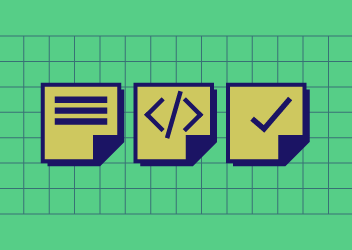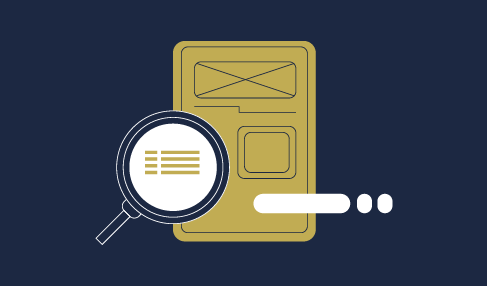Great! You are planning for the next killer mobile application with the agile scrum methodology.
But… What is agile scrum method in the context of mobile app development? How is it beneficial? Find out in this article.
Mobile app development is a bit critical process if you wish to build an astounding app. All you need for this is proactive and brainstorming ideas. Business leaders are seeking every possible way for the quick market reach and outshine the competition. That’s why many developers follow an agile scrum methodology.
Agile scrum methodology is the most prevalent method in project management in today’s market. The perks it provides are more amazing such as increased business value, better quality management, greater transparency, and more are enough to push the developers to follow the Agile development Scrum approach for their project.

The Statista results have also shown that the agile development methodology greatly influences worldwide software developers. As of early 2018, 91 per cent of the developers had adopted this methodology.
Understand the Difference Between Agile and Scrum
However, there is a slight difference between agile and scrum, if we speak these two words individually. The Agile methodology is an incremental plus iterative approach to developing an application. Here the whole app development process cycle is divided into the multiple sub-modules, considered as mini-projects, whereas the scrum is just an agile methodology type or its implementation.
Now, let’s move to something else that you should consider before adopting an agile development methodology, know its bases on what Agile Scrum Method stands for and how it single-handedly brings the model miles ahead.
Agile Methodology In Mobile App Development
Comprehensively, the job of Agile in the mobile app is well-eminent, and Scrum is the most commonly used subdomain here, which has immediately extended to handle big and complicated projects that can otherwise take a considerable time to complete.
Many app development companies use the scrum to break down their assigned work aka product backlogs in action that they could cover within two-week rounds, also called “sprints”. After the completion of every sprint, the team creates an app on which they continue to work and improvements.
Every sprint has a timeline of 2 months that can extend the maximum to 4 months. And each of them includes the following components for efficient mobile app development-

1. Scrum Roles
The efficiency of your agile distributed team management depends upon your roles distribution.
- Product Owner–Responsible for overlooking the team’s work and ensuring that backlog is updated regularly.
- Scrum Master – Assigned for ensuring the proper follow up of the agile scrum by the team. They are also responsible for overlooking the team’ performance and resolving the issues that arise.
- Scrum team – Does the task and owns the development plus testing part of the whole project.
2. Product Backlog
It’s a list of the tasks on which the team has to work and controlled by the product owner. The priorities and modifications are set according to the requirement.
Here, the idea is to have all a list of backlogs ready before the sprint begins.
3. Agile Sprint Backlog & Planning
Now the developer’s team decides which backlogs they will target in the current Sprint. The sprint backlog contains the list of things that the team plans to achieve in the delivery. Usually, it’s divided into workable actions, and once the team gets agreed upon the backlog items, the Sprint begins.
4. Daily Scrum Meeting
Once the above steps of the agile methodology are done and the team starts working on the product backlogs, a practice called daily Scrum initiates. Every day a stand up daily meeting is held for 15 minutes. Here everyone in the team speaks about the last day’s plan.
The daily Scrum lets the whole team know the progress of the entire project.
5. Agile Sprint Review
After every agile Sprint, the team demonstrates the features developed for the client that performed well and which did not. The results of one Sprint become the action statement of the next Sprint.
6. Increment
The result of a scrum is called Increment. Every aim is involved in a scrum to provide an increment. It’s intact on its own and adheres to all the quality standards set by the product owner and team.
7. Learn, Repeat & Improve.
The entire cycle repeated in the next Sprint.
Now Sprint Planning picks the next set of items in the Product Backlog and begins the sprint cycle again. As the app developers execute the Sprint, the Agile Product Owner simultaneously ensures the top things of the product backlog are completed first in the next Sprint.
This short iterative cycle offers excellent opportunities for the team to learn and improve.
Benefits of Agile In Mobile App Development Process
Agile mobile app development is hands down one of the best app development approaches today and loved in the developer’s community. And that’s the real reason why from the SMEs (Small to Mid-scale enterprises), to Fortune 500 companies are opting this approach.

With the agile methodology, app development companies can divide their entire product lifecycle into small segments called sprints. These sprints are great for measuring project improvement while eliminating the redundancies chance.
Know its benefits in-depth:
1. Improves App Quality
The testing and QA integrates at every sprint throughout the entire scrum process where the app checked at all stages. Hire mobile app developers in India & make ensure that an app is developed according to the quality standard set by the team
Thus an agile methodology seals the app future in terms of its high performance and acceptance.
2. Low-Risk Factor
We can also use this tool to calculate the risks that can occur in the project and devise the solutions. It’s another benefit of following the agile mobile app development approach.
3. Seamless Management
With agile methodology, you can make your project management process smooth plus seamless as the whole project is divided into sprints. That makes it easier to manage by assigning separate tasks to multiple teams like app developers for the programming part and testers for app or software testing.
4. High ROI
The agile app development method lets the businesses enter the market with just their MVP that they can upgrade later on with each iteration of the app. With this, mobile app development companies can improve their ROI along with their mobile app.
In a Nutshell
The agile scrum mobile app development methodology includes programming, development and project management that divides down the app development life cycle into smaller modules. Its adoption is simple and further allows the developers to gain an in-depth understanding of the project.

Let’s summarise its principles from the quick checklist:
- Provide early and on-going delivery of app modules in less time
- Hassle-free communication between the development team and the client
- Meet the rapidly changing market demands.
- Break down a large number of requirements into manageable chunks
- Allows maximum utilization of resources.
Final Words
At present, many mobile app development companies have adopted the agile scrum approach to meet the 100% client’s satisfaction level. So, if you want to bring your app ideas into life, then consult these companies. They can deliver you the best possible results and grow your business by all the leaps and bounds.





